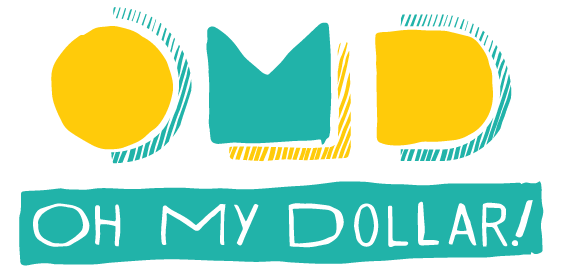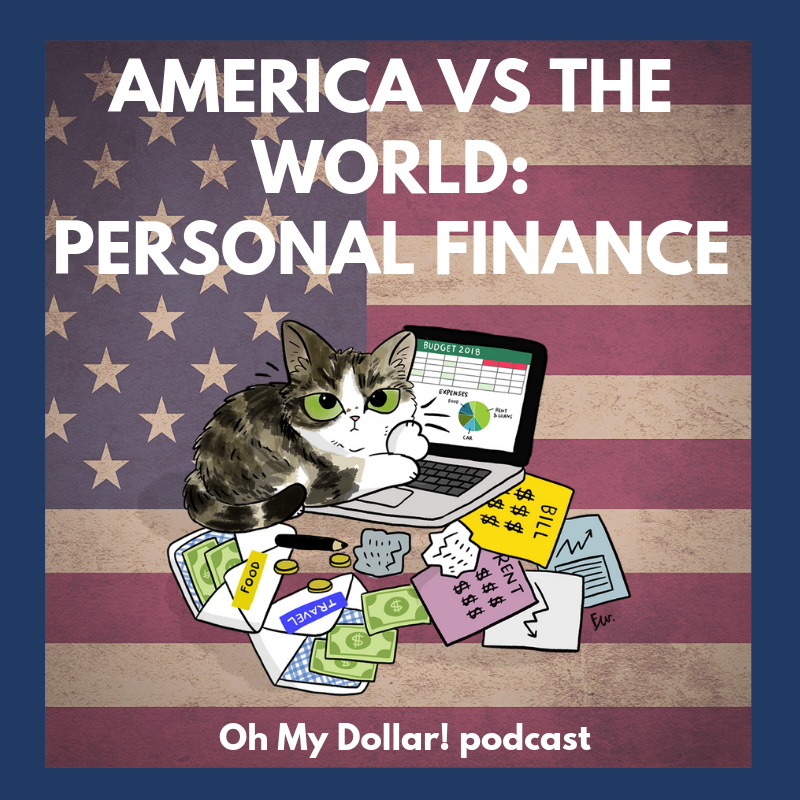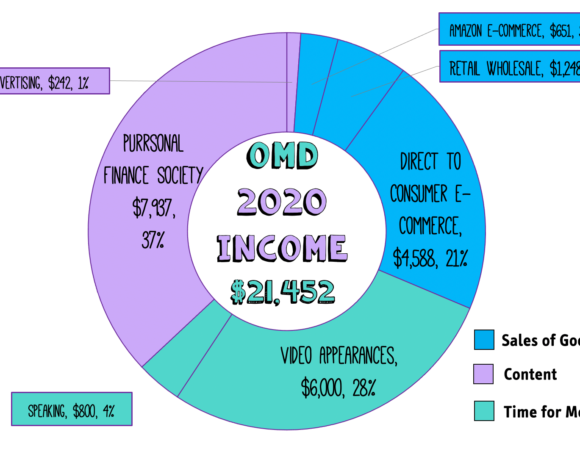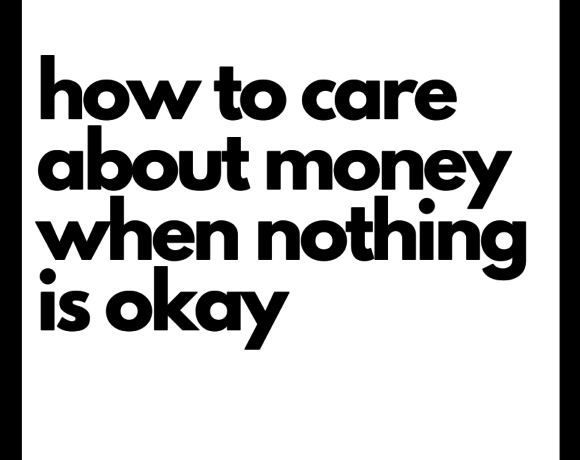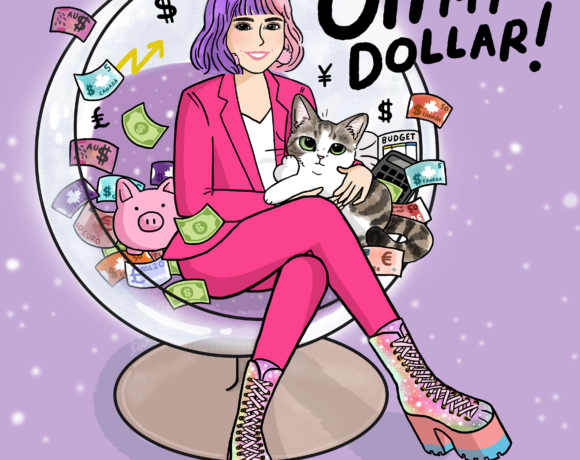It’s 4th of July (American Independence Day), so here’s an episode about things that America does differently in personal finance.America America – this is a place most of our listeners, according to our analytics, live.
To celebrate independence day, I thought I would talk about some of the things that the US does differently in personal finance, and some of the things they do that are the same.
Things that are special about the US
- Our credit system is relatively unique, and one of the only countries where you can get rewarded for positive information and not just negative marks! While it is complicated, it was set up as a way to get rid of bias in lending based on sex, marital status, race, and other factors.
- Choice – we have a lot of choice! Everything from cereal to credit unions.
- We still do checks – which are largely nonexistent in the rest of the world.
- We don’t do chip and pin credit cards!
- We tip! We’re very into tipping.
- We are one of the only countries in the world that does not mandate paid maternity leave. United States is one of the only countries in the world, and the only OECD member, that has not passed laws requiring business and corporations to offer paid maternity leave to their employees.
- We have a much more complicated and expensive health care system than most countries.
- We’re one of the top countries for entrepreneurship!
- We have extremely stable financial institutions – the U.S. dollar remains the world’s reserve currency based largely on the size and strength of the U.S. economy and the dominance of the U.S. financial markets.
Ask us a question!
We love hearing from you! Email us your financial worries or your emergency fund stories or cat pictures at questions@ohmydollar.com or tweet us at @anomalily or @ohmydollar
All the numbers and stories on this show came from the Oh My Dollar! forums, a friendly, nonjudgemental online community about money. Don’t be afraid, come join us on the forums!
This show is made paw-sible by listeners like you
We absolutely love our Purrsonal Finance Society Members, the folks that generously support Oh My Dollar with $1 or more a month on Patreon – and have made is so we have free, full transcripts for every show on ohmydollar.com This episode was underwritten by patron Tamsen G Association.
To learn more about being part of the Purrsonal Finance Society and get cool perks like exclusive livestreams and cat stickers, you can visit ohmydollar.com/support
Transcript (provided by our listener supporters on Patreon)
America vs The World_ Personal Finance Edition.mp3 | Convert audio-to-text with Sonix
Will Romey:
This show is supported by generous listeners like you through our Patreon.
Will Romey:
This episode was underwritten by the Tamsen G association.
Will Romey:
To learn more about ways to support Oh My Dollar! and get cool perks like cat stickers and a fancy special icon on our forums. You can visit ohmydollar.com/support/
Lillian Karabaic:
Welcome to Oh My dollar!, a personal finance show with a dash of glitter. Dealing with money can be scary and stressful. Here, we give practical friendly advice about money that helps you tackle the financial overwhelm.
Lillian Karabaic:
I’m your host, Lillian Karabaic.
Will Romey:
I’m your other host, Will.
Lillian Karabaic:
Will! America.
Will Romey:
America.
Lillian Karabaic:
America.
Lillian Karabaic:
‘murica.
Will Romey:
You said it.
Lillian Karabaic:
This. This is the place that most of our listeners according to our analytics live. That’s all we really know. We don’t know about your relationship to the US, other than the fact that your podcast downloads come from there.
Will Romey:
Your IP is from an America.
Lillian Karabaic:
Maybe they’re all Europeans using VPNs.
Lillian Karabaic:
Yeah possibly but it is American Independence Day this week. And I thought to celebrate Independence Day, we would talk about some of the things that America does differently in personal finance and some of the things that we do that are the same.
Lillian Karabaic:
The reason I thought this would be interesting is because – one while we are mostly Americans, we have a fair amount of international listeners and I’m always curious to hear how banking systems and personal finance vary based on country because it is – It does end up being very regionalized.
Lillian Karabaic:
On the other thing is how normalized we get to believing that things are the only possible way to do something.
Will Romey:
Yes absolutely. As someone who’s lived in America My whole life – I’ve travelled pretty extensively – Looking ahead at this list there are some frankly surprising things.
Lillian Karabaic:
And I’m trying to keep a good balance of what I initially started writing this list. It got really depressing and I think it’s because I am dealing a lot with the health insurance industry right now because I’m going in for surgery soon,
Will Romey:
Hey but you’re not banging on the table today!
Lillian Karabaic:
When Lily breaks her wrist and then she stops banging on the table makes will appreciate –
Will Romey:
How to break habits!
Lillian Karabaic:
So yeah, I’ve been dealing with like health insurance – which I think health care is one of the biggest personal finance things that we do differently in the United States than most other countries in the world. And I have been feeling you know a little discouraged about how America differs – but in many ways we are the birthplace for innovation in financial markets.
Lillian Karabaic:
We have probably the most diversity in our banking industry, which is really cool – so like a Canadian which is a lot of people think of you know kind of there.
Will Romey:
The fifty first state
Lillian Karabaic:
Yeah yeah. Oh! The Canadians are gonna write in and be so angry.
Will Romey:
It’s okay. They won basketball this we’ve got that going for.
Lillian Karabaic:
They won the NBA, which is like really notable.
Will Romey:
But they haven’t won the Stanley Cup for like five years or something. So anyways.
Lillian Karabaic:
And Sports are all that matters!
Will Romey:
Yeah that’s the one area I’ll be patriotic about.
Lillian Karabaic:
Sports?
Will Romey:
Yeah. I don’t feel like America should win basketball but anyway. Save for the other podcast!
Lillian Karabaic:
I know the thing that I think is like really interesting is how much diversity we have in banking. Generally diversity in financial systems is a lot of the things that America does differently.
Lillian Karabaic:
So it’s one of the things that’s broken about our health care system is how many insurers we have, and how like scattered and diverse our, kind of you know health insurances, but on the flip side we have so many banking options in the United States!
Lillian Karabaic:
And we have so many options of discount brokers to invest in – like Vanguard and Fidelity and all of that. And most of that stuff was innovated. So like the existence of credit unions, is not uniquely America, but we have way more credit unions than any other country in the world does and close to 85 percent of wealth in Canada is all in the same six banks.
Will Romey:
Ohhhh! Probably number one being the Bank of Canada.
Lillian Karabaic:
I believe so. Yeah. Yeah it’s but it’s you know the same six retail banks as far as retail wealth – and and that is lower than 50 percent in the United States controlled by what is called Our Big 5 and that is because you know they have credit unions up there, but they have like 600 in the whole country we have more than 10 times that amount in the United States.
Lillian Karabaic:
And I think that’s one of the really cool things the American obsession with diversity and making sure that we have the maximum number of choices available at all times. I don’t want to be able to just get one cat collar on Amazon – I need to be able to have you know 500.
Will Romey:
Absolutely.
Lillian Karabaic:
Definitely like living abroad. I don’t know if you get this experience when you come back from travelling abroad but going into grocery stores the United States is really overwhelming.
Will Romey:
M hmm.
Lillian Karabaic:
Coming from most other countries
Will Romey:
But that’s always my favorite thing to do in another country is to hit the grocery stores
Lillian Karabaic:
I definitely enjoy it.
Will Romey:
Like I mean not my favorite thing but like -.
Lillian Karabaic:
Probably closet to one of my favorite things to do. I just enjoy food.
Lillian Karabaic:
But but in America we. So many options and like in a regular supermarket, you know, we don’t just have like one option of sugary cereal we have two hundred and – And that kind of plays out to a lot of our personal finance and banking. And that is one of the reasons that we are so innovative.
Lillian Karabaic:
Like most of the FinTech companies that are doing stuff kind of on the cutting edge of personal finance come out of the U.S.
Will Romey:
Fintech is financial tech.
Lillian Karabaic:
Financial tech!
Will Romey:
Fin-nances!
Lillian Karabaic:
You’re hip. If you say the words fintech –
Will Romey:
obviously missed that one.
Lillian Karabaic:
You’re not hip, Will. You’re hip in a very niche and.
Will Romey:
It sounds like some dolphin prosthetics company.
Lillian Karabaic:
I love it.
Lillian Karabaic:
I love just imagining like a like a dolphin that has like a strap-on fin.
Will Romey:
Be cool.WE’
Lillian Karabaic:
we’re getting off track, here. But but then on the flip side, one of the things that America does differently that you might not be familiar with if you’ve grown up in America is is that Checks! We still do checks here. Right. Like paying rent with checks is still like very normal.
Will Romey:
I still pay my rent with checks. Yeah. Yeah I remember we did a whole episode on checks – where you pointed out but that’s like we’re the only country that does that!
Lillian Karabaic:
We are like literally the only country left that does checks as a matter of like regular business. They’re largely nonexistent the rest of the world and that one of the issues with the checks is that our ACH system which ACH is electronic transfers between banks right? So, if you if you don’t do checks but kind of an electronic check it’s ACH systems are really really antiquated in the U.S. which is bizarre. It’s kind of like we innovated in it first, so then we haven’t switched from it.
Will Romey:
Right. That makes sense.
Lillian Karabaic:
It’s like in a lot of ways. America will be on the cutting edge of some sort.
Will Romey:
You get the First generation iPod.
Lillian Karabaic:
And then you like-
Both:
Never upgrade.
Lillian Karabaic:
And that’s our ACH system is very slow in most other countries you can like SMS someone money and it will transfer between banks instantaneously. And that is just simply not true in the United States.
Lillian Karabaic:
And that’s because the way we do ACH is still literally uploading things to FTP, a giant spreadsheet of bank account numbers. So that’s weird.
Will Romey:
Yeah that’s different.
Lillian Karabaic:
And that also kind of faces in to the fact that we don’t do chip and PIN cards here! So other than maybe doing Chip and Pin for your debit card for direct access to your checking account, credit cards abroad are almost all chip and PIN.
Lillian Karabaic:
The fact that we sign pieces of paper here to say that you’re responsible – even though like quite often we don’t don’t sign because below 50 dollars or whatever they don’t make you sign at this point anymore. But the act of signing these slips of paper that then are held in large vaults in the back of stores is a weird .
Will Romey:
That is strange.
Lillian Karabaic:
And totally abnormal in the rest of the world. And that’s because our banking system is just slower we’re slower to adapt on on a large scale.
Will Romey:
So jumping ahead on your list – saying that stable financial institutions the U.S. dollar remains one of the world’s reserve currency is based largely on the size and strength of the U.S. economy and dominance of U.S. financial markets. Do you think that has to do with why we’re comfortable using checks so much?
Will Romey:
Cuz if you trust a bank’s stability you’re more likely to assume that a check isn’t going to totally screw you over.
Lillian Karabaic:
Yeah I do think that the the fact that the U.S. has such stable financial institutions does make a lot of our kind of free-flowing debt and maybe the fact that we use checks is because we kind of believe that the banks will be there.
Lillian Karabaic:
Other than the savings and loan crisis that we had in the 80s and stuff like that. We haven’t had a lot of bank runs in the U.S. right? We are not Zimbabwe.
Will Romey:
Cept that big one in the 30s.
Will Romey:
In ’29 I guess.
Lillian Karabaic:
Yeah right on that big one. Well and we haven’t been a reserve currency since the 30s right? So the United States became the reserve currency for the world in the Bretton Woods Agreement, which happened in the 50s and the Bretton Woods agreement essentially said like we wanted to not have another Great Depression. Because Great Depression was global, it wasn’t just the US.
Lillian Karabaic:
And they wanted to link global currencies to gold, but it wasn’t really possible to do that. But at the time the U.S. currency was linked to gold and we have the largest stores of gold in the world. And so, essentially the decision that they made at Bretton Woods was that other countries could use the United States currency as a reserve currency, because we were then backed by gold.
Will Romey:
Because we had lots of gold. Okay. I know that makes sense.
Lillian Karabaic:
And then during we had a lot of stress partially because of the gold backing and Reagan deregulated and unlinked us from the gold standard. And at that time- So no longer is our currency backed by gold. It now is a floating currency, but it is still very much used as a world reserve currency. And one of those reasons is like, Our currency has never been challenged for authenticity right?
Lillian Karabaic:
So like the amount of. Fit that we deal with it from a currency-.
Will Romey:
Largely inconsequential.
Lillian Karabaic:
Inconsequential because in other countries so. We, the United States is good enough at printing money that we actually print money for other countries. We print other countries currencies for them.
Will Romey:
I didn’t know that
Lillian Karabaic:
– and a lot of countries don’t have a large enough economy or a stable enough economy or a stable enough financial institution to either have their own currency or to have their own currency that is not then based on the exchange rate of the U.S. usually. So we’re not the only reserve currency in the world. Some other countries will use the Great British pound, some currencies use the euro. Obviously countries that that isn’t their currency. Will use that right?
Lillian Karabaic:
But we’re used as were the were there also the most traded foreign currency in the world. So and if you are in a country that has decided to not do trade in that country’s currency for whatever reason – which happens a lot. Some many currencies are very unstable. The U.S. dollar is one of the most common ones. So and that’s largely because we do have such and such stable financial institutions.
Lillian Karabaic:
We know the U.S. will always pay back its debt. That’s why we have a good credit rating. With the world.
Will Romey:
So far so good.
Lillian Karabaic:
We also one thing that someone pointed out that I think is kind of unique and related to this is we have a clock of our debt in New York that you could just watch it tick up.
Lillian Karabaic:
You can also go online and get it, I’ll link to it in the show notes.
Will Romey:
Official new york one. I’ve seen that demonstration.
Lillian Karabaic:
We have a constant debt clock as it goes up – which is kind of cool.
Lillian Karabaic:
But one of the big reasons you know – I’ve talked before about why I don’t necessarily think the deficit is the runaway issue that a lot of people seem to think it is.
Lillian Karabaic:
And one of the reasons that we do have the deficit is because other people want to hold our currency, because our currency is so stable. A lot of foreign governments and foreign actors decide that U.S. currency is a good thing to have and so they’re willing to buy it. They’re willing to buy our currency and our debt.
Lillian Karabaic:
Yes. So another thing that we do that is kind of cool is that our credit system is relatively unique.
Lillian Karabaic:
We are one of the only countries in the world where you can get rewarded for positive information and not just derogatory marks. So in most other countries, credit will kind of start perfect or nonexistent and.
Will Romey:
And then decline –
Lillian Karabaic:
And decline as you as you don’t pay back your debts. In the U.S. you can actually build positive credit, without having negative marks on your credit which is very unique to the United States.
Lillian Karabaic:
There’s very few countries that have that on the credit system and our whole credit system. While, it is not perfect and is very complicated. And you know we’ve spent plenty of time on the show talking about it. It was set up as a way to get rid of bias in lending based on -.
Will Romey:
I didn’t know that.
Lillian Karabaic:
So your credit score and report does not include your sex or marital status your race your religion and other factors that used to be some of the main factors in whether or not they would lend you money.
Will Romey:
yea!
Lillian Karabaic:
And so the cool part is that our credit system is meant to eliminate that and a lot of countries don’t have that option.
Good work US, credit system.
Lillian Karabaic:
Wasn’t something I was expecting to say today.
Lillian Karabaic:
Yeah. Not a common thing I say right?
Lillian Karabaic:
Maybe for a bad thing the United States does not do-.
Lillian Karabaic:
We are one of the only countries in the world that does not mandate paid maternity leave.
Will Romey:
Booo!
Lillian Karabaic:
Yeah. We are one of the only OED members which means developed economies. That has not passed laws requiring businesses and corporations to offer paid maternity leave to their employees, which sucks.
Will Romey:
Yeah yeah that’s a bad one. Fix that.
Lillian Karabaic:
And it has a big effect on people’s personal finances.
Lillian Karabaic:
So, on the flip side we are one of the top countries for entrepreneurship in the world. It can be a lot harder to start businesses. There can be a lot more like you know just a societal bias against starting businesses or regulatory frameworks in place. There are a lot of countries where just not possible to just start your own business.
Will Romey:
Just cuz of challenging regulations or paperwork laws.
Lillian Karabaic:
Or Corruption – Or any of that. And so yeah we’re one of the top countries for ability to start a business, which is why we have one of the highest rates of entrepreneurship and makes a largely one of the reasons why the U.S. has such a diverse and varied economy, which means that we have stable financial institutions which is pretty cool!
Lillian Karabaic:
We have the only currency in the world that has not suffered any deflation since the 70s, when we removed from the gold standard.
Lillian Karabaic:
Which is why I generally say that if you’re invested in the U.S. stock market and you’re doing as well as the stock market on the whole, your portfolio will always go up and that is because we – our economy is always growing essentially. And a lot of people think that is because we’re good at entrepreneurship.
Will Romey:
Maybe, that’s-.
Lillian Karabaic:
One thing we do. I don’t know if it’s good or bad but, we tip!
Will Romey:
That’s a thing into tipping. I’m for it in some circumstances and I think that I usually tip well and consistently.
Will Romey:
But it is antiquated.
Lillian Karabaic:
It is it is and it is a system that is essentially held up by the fact that we just don’t -.
Will Romey:
Don’t get paid well,.
Lillian Karabaic:
Yeah. We just don’t have a proper social safety net, and we have we have a tipped minimum wage.
Will Romey:
But at least people tip.
Lillian Karabaic:
But yeah.
Lillian Karabaic:
But at least we do those things and people could not. Exactly that works. And I do think it does make it very confusing for foreigners when they visit us because we tip but then we have like different standards for what percentage you tip, and in what circumstances for all different things.
Will Romey:
A dollar per coffee.
Lillian Karabaic:
Yeah but that’s it’s easy in restaurants – but then it’s a question of like do you tip the bellboy, do you tip the taxi driver, do you tip – like you know it ends up being one of these.
Will Romey:
I don’t interact with Bell people or Taxi Driver often.
Lillian Karabaic:
Well, I think people are so worried.
Will Romey:
Bike mechanic?
Lillian Karabaic:
A lot of foreigners are right, That’s a good question. Most people don’t.
Will Romey:
Tattoo Artist?
Lillian Karabaic:
Yeah you do tip a tattoo artist you don’t tip a bike mechanic. How would you know this? I remember I used to do. I worked at grocery store and I used to occasionally help people out to their car with groceries. We were not allowed to take tips at my store.
Will Romey:
That seems like tipping role,.
Lillian Karabaic:
Right, but that’s one of the questions where it’s like would you tip would you not. But like I didn’t get paid a tipped wage. So like I didn’t really feel like it was appropriate to take a tip. But that’s one of those things where it’s just like oh well America. But it’s a thing we do different other countries tip. Very few countries tip, in the way that we do. And at the levels that we do. Right. Like in Germany you might give “trinkgeld” like at a bar which is like you would earn.
Will Romey:
Trinkgeld – I know gelt is gold.
Lillian Karabaic:
Gelt is actually just money. And so it’s just it just means “drink money” drink and it’s kind of like do you round up though. So it’s it.
Right. The like change leftover from the bill.
Will Romey:
Right. You wouldn’t even put a full dollar down for a beer like you would like maybe leave like if you paid one ninety five you would round up by five cents. And like you don’t even have to do that. You’re not like offending someone by not leaving a tip the way that you are here where it’s like “oh my gosh”.
Lillian Karabaic:
A Requirement. Yeah.
Lillian Karabaic:
Yeah yeah. So I don’t know that’s a thing we do different.
Lillian Karabaic:
I don’t want to dive too much in a health care because *laughs in Sad American*
Will Romey:
Send us more if you think of more. I’m intrigued by these differences
Lillian Karabaic:
Yea! I did – I asked on Twitter what people do, That’s like unique, in the United States. And I got some interesting responses from folks that are that are you know now live in the states that are from other countries.
Lillian Karabaic:
And Paul, Paul my friend Paul is, I believe New Zealand or Australian- I’m sorry I should know which one you are but umm.
Lillian Karabaic:
He lives in the States now and he said “my U.S. bank has a web interface to mail a check on my behalf to everyone I choose!”
Lillian Karabaic:
He says that he says “free coffee in bank branches. I’m not sure if they all fall in the category of personal finance but I sure appreciate the coffee while discovering new ways the U.S. banking system requires me to use checks.”
Lillian Karabaic:
He also said “every single business wants to give me a credit card!” That is one of the big things –
Will Romey:
airplanes!
Lillian Karabaic:
That’s.
Will Romey:
LL BEAN!
Lillian Karabaic:
One of the things that emerged is a little bit you know when we were talking about travel hacking and sign up bonuses and stuff like that. I was saying like oh there’s a couple options if you’re in the U.K., Canada, or Australia. But like by and large, we have the best sign up bonuses and that’s largely because we love debt instruments! We’re like we can invent a new debt instruments for everything in the United States, but we do have the best sign up bonuses!
Lillian Karabaic:
One of the Canadians who’s responding to me said a good sign up bonus would be 100 bucks.
Will Romey:
Yea!
Lillian Karabaic:
But here in the States. No. Right!
Lillian Karabaic:
You got it. Yeah. No I I can’t really say.
Will Romey:
100 bucks just sounds good.
Lillian Karabaic:
I get but I get signed up bonuses in the realm of 2000 bucks (in travel benefits).
Will Romey:
Hundred bucks is more for Canadians!
Lillian Karabaic:
Not it’s not, it’s less!
Well I mean if.
Lillian Karabaic:
It was 100 US!
Both:
MUMBLE MUMBLE
Will Romey:
What else we got?
Lillian Karabaic:
I don’t know. I can’t I can think of much else.
Will Romey:
Send us more!
Lillian Karabaic:
Yes send us more! Was this an appreciation for the United States episode or was this degrading the U.S.?
Will Romey:
I think the fact that our credit system has positive aspects to it is cool.
Lillian Karabaic:
That’s cool. We also –
Will Romey:
The check thing it’s like suddenly starting to seem like antiquated in a funny way.
Lillian Karabaic:
Right. As opposed to like –
Will Romey:
I don’t feel inconvenienced by it so maybe that’s just kind of cute.
Lillian Karabaic:
We do a very low check fraud. You know as compared to countries 25 years ago. So we don’t know we’ve gotten decent at shutting it down I guess?
Will Romey:
I know. I mean I could never take a check on like craigslist or something but I don’t mind paying with them.
Lillian Karabaic:
Yeah. Man, checks.
Will Romey:
All right. We’ll keep on e-mailing us your interesting things. We love hearing from you. You can e-mail us any more differences between the United States personal finance and other countries questions@ohmydollar.com, or you can tweet us @anomalily or @ohmydollar
Lillian Karabaic:
Our producer is Will Romey, our intro music is by Aaron Parecki, and your host and personal finance educator is me Lillian Karabaic.
Lillian Karabaic:
Thanks for listening. Until next time remember to manage your money, So it doesn’t manage you. And happy birthday United States!
Will Romey:
Oh yea!
Convert audio to text with Sonix. Sonix is the best online audio transcription software
Sonix accurately transcribed the audio file, “America vs The World_ Personal Finance Edition.mp3” , using cutting-edge AI. Get a near-perfect transcript in minutes, not hours or days when you use Sonix. Sonix is the industry-leading audio-to-text converter. Signing up for a free trial is easy.
Convert mp3 to text with Sonix
For audio files (such as “America vs The World_ Personal Finance Edition.mp3”), thousands of researchers and podcasters use Sonix to automatically transcribe mp3 their audio files. Easily convert your mp3 file to text or docx to make your media content more accessible to listeners.
Best audio transcription software: Sonix
Researching what is “the best audio transcription software” can be a little overwhelming. There are a lot of different solutions. If you are looking for a great way to convert mp3 to text , we think that you should try Sonix. They use the latest AI technology to transcribe your audio and are one my favorite pieces of online software.
